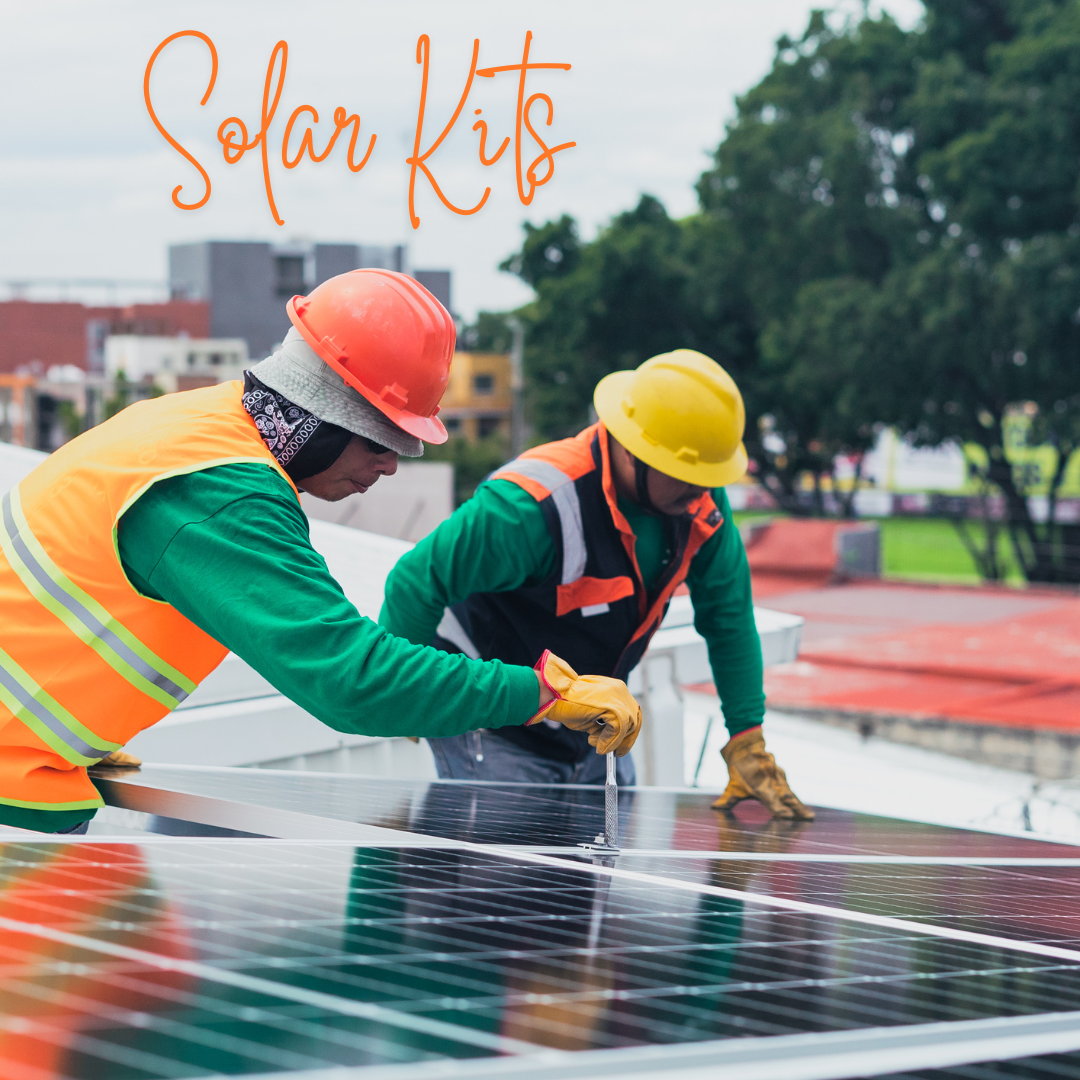Comparing Power Solutions: Portable Solar Kits or Traditional Generators?
When it comes to choosing between a portable solar kit and a traditional generator, it’s essential to weigh the pros and cons of each to determine which option best suits your needs. Both provide valuable solutions for powering devices and equipment in off-grid situations, but they offer different benefits and limitations. This comprehensive guide will explore the features, advantages, and disadvantages of portable solar kits compared to traditional generators to help you make an informed decision.
Understanding Portable Solar Kits
A portable solar kit typically includes solar panels, a battery storage system, and sometimes an inverter. These kits harness sunlight to generate electricity, which is then stored in the battery for use when needed. Portable solar kits are favored for their clean energy source, ease of use, and minimal maintenance requirements.
Key Benefits of Portable Solar Kits
- Eco-Friendly: The most significant advantage of a portable solar kit is its environmental impact. Solar energy is a renewable resource, meaning it doesn’t produce greenhouse gases or pollutants. Using a portable solar kit reduces your carbon footprint and contributes to a more sustainable future.
- Silent Operation: Unlike traditional generators, which can be noisy, portable solar kits operate silently. This is particularly advantageous for activities such as camping, where a quiet environment enhances the experience.
- Low Maintenance: Portable solar kits generally require minimal maintenance. Solar panels have no moving parts and only need occasional cleaning to remove dust and debris. This contrasts with generators, which require regular oil changes, fuel maintenance, and part replacements.
- Ease of Use: Setting up a portable solar kit is straightforward. Once the panels are positioned in a sunny spot, the system automatically begins converting sunlight into electricity. Most kits are user-friendly and don’t require technical expertise.
- Cost Savings Over Time: Although the initial investment in a portable solar kit can be higher than that of a generator, the long-term savings can be substantial. Solar energy is free, and with minimal ongoing costs, a portable solar kit can provide significant savings over its lifetime.
Exploring Traditional Generators
Traditional generators are powered by gasoline, diesel, or propane and use an internal combustion engine to generate electricity. They are commonly used for backup power in homes and for various outdoor activities. Generators come in various sizes and capacities, making them versatile for different power needs.
Key Benefits of Traditional Generators
- High Power Output: Traditional generators are known for their robust power output. They can provide a large amount of electricity, making them suitable for powering multiple appliances or tools simultaneously. If you need a high capacity for heavy-duty equipment, a generator may be the better choice.
- Consistent Power Supply: Unlike portable solar kits, which depend on sunlight, generators provide a consistent power supply regardless of weather conditions. This reliability is crucial during extended power outages or when operating in areas with limited sunlight.
- Quick Refueling: Generators can be refueled quickly and easily, allowing for uninterrupted power supply. This is particularly beneficial in emergencies where a portable solar kit may not have enough stored energy to last through an extended outage.
- Lower Initial Cost: Generally, traditional generators have a lower upfront cost compared to portable solar kits. This can be an attractive option for those on a tight budget or those who need temporary power solutions.
Comparing the Two: Which Is Better?
Choosing between a portable solar kit and a traditional generator depends on several factors, including your power needs, environmental concerns, and budget. Here’s a closer look at how they compare:
- Cost Considerations
While the initial cost of a portable solar kit can be higher, it often results in long-term savings due to the absence of fuel costs and lower maintenance requirements. Generators may have a lower upfront cost but involve ongoing expenses for fuel and maintenance.
- Environmental Impact
A portable solar kit has a clear advantage in terms of environmental impact. Solar energy is clean and renewable, while traditional generators emit greenhouse gases and pollutants. If reducing your carbon footprint is a priority, a portable solar kit is the better choice.
- Power Needs and Duration
For high power output and continuous operation, traditional generators are generally more reliable. They provide consistent power and can handle heavy loads, making them suitable for larger-scale needs. However, for lower power requirements and a more sustainable approach, a portable solar kit can be sufficient.
- Portability and Convenience
Portable solar kits are designed for easy transport and setup, making them ideal for camping, hiking, or small-scale applications. They are lightweight and don’t require fuel, which adds to their convenience. On the other hand, generators, while generally portable, are heavier and require fuel, which can be less convenient in remote areas.
- Maintenance and Operation
Portable solar kits are low-maintenance and operate silently, which enhances their appeal for recreational use. Generators require regular maintenance and produce noise during operation, which might be disruptive in certain settings.
Making Your Decision
When deciding between a portable solar kit and a traditional generator, consider your specific needs and priorities. If you value environmental sustainability, low maintenance, and ease of use, a portable solar kit may be the best option. If you require high power output, consistent electricity, and quick refueling, a traditional generator might be more suitable.
Ultimately, both options have their merits, and the right choice depends on your individual circumstances and preferences. By carefully evaluating your power needs, budget, and environmental considerations, you can select the solution that best fits your lifestyle and requirements.
For expert advice and a wide selection of portable solar kits tailored to your needs, visit Ankok Solar. Discover how our high-quality solar solutions can enhance your power experience and help you make a sustainable choice today!
Frequently Asked Questions (FAQs)
- What is a portable solar kit?
A portable solar kit is a collection of components designed to harness solar energy and convert it into usable electricity. Typically, it includes solar panels, a battery storage system, and sometimes an inverter. This setup allows users to generate and store power for use in off-grid situations, such as camping or emergency backup.
- How does a portable solar kit work?
A portable solar kit works by capturing sunlight with solar panels, which then converts the sunlight into direct current (DC) electricity. This electricity is stored in a battery for later use. If the kit includes an inverter, it can convert the DC electricity into alternating current (AC), which is used to power most household appliances.
- How do traditional generators compare to portable solar kits in terms of power output?
Traditional generators generally offer higher power output compared to portable solar kits. They can power larger appliances and multiple devices simultaneously. In contrast, portable solar kits are often designed for smaller power needs, such as charging electronics or running small appliances. However, advancements in solar technology are increasing the power capacity of portable kits.
- What are the maintenance requirements for a portable solar kit?
Portable solar kits are relatively low-maintenance. The solar panels should be kept clean and free of debris to ensure optimal performance. Regular checks to ensure that all connections are secure and that the battery is functioning properly are also recommended. In contrast, traditional generators require regular maintenance, including oil changes, fuel refills, and engine servicing.
- Can a portable solar kit work in cloudy or low-light conditions?
While a portable solar kit is most effective in direct sunlight, it can still generate electricity in cloudy or low-light conditions. However, the power output will be reduced compared to full sun exposure. Many portable solar kits are designed to maximize efficiency even in less than ideal conditions.
- How long does it take to charge a battery with a portable solar kit?
The time required to charge a battery with a portable solar kit depends on several factors, including the size of the battery, the wattage of the solar panels, and the amount of sunlight available. On a sunny day, a typical portable solar kit can fully charge a battery in several hours. However, charging times may be longer in cloudy or low-light conditions.
- Are portable solar kits suitable for emergency backup power?
Yes, portable solar kits can be a valuable addition to an emergency preparedness plan. They provide a renewable and reliable source of power during power outages or natural disasters. However, for extended outages or high power needs, it might be beneficial to supplement a portable solar kit with other backup power solutions.
- How do I choose the right portable solar kit for my needs?
When selecting a portable solar kit, consider factors such as your power requirements, budget, and intended use. Look for kits with adequate power output, reliable battery storage, and easy setup. Assess the kit’s portability, durability, and any additional features, such as USB ports or built-in inverters, to ensure it meets your specific needs.
For more information on finding the perfect portable solar kit for your needs, visit Ankok Solar and explore our range of high-quality solar solutions. Our experts are here to help you make the best choice for your power needs.

